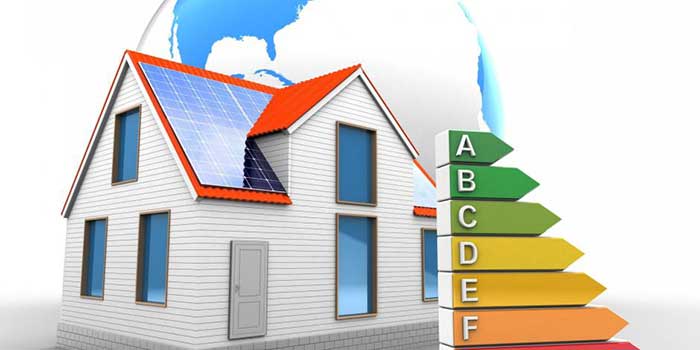HERS vs. HES: What’s the Difference?

Home buyers are becoming increasingly conscious of all of the hidden costs that go into owning a home, and that’s got the housing market buzzing about home energy efficiency. More and more prospective buyers are requesting information about a home’s energy efficiency so that they can better understand what energy costs will be associated with owning their new home. Two of the most well-known systems for demonstrating a home’s overall energy efficiency are the Home Energy Rating System (HERS) Index and the Home Energy Score (HES).
How the HERS Index Score Works
The HERS Index was developed by the Residential Energy Services Network (RESNET) and is used by home builders to demonstrate a home’s total energy efficiency. It has historically been used as a rating system for new homes. A HERS Index Score takes into account a home’s exterior structure, attic and crawlspace, windows and doors, ductwork, HVAC systems, hot water system, and more.
The HERS rating scale is unique because it compares the home being assessed to a reference point (100) — a standard new home of similar shape and size. Each point on the HERS rating scale corresponds to a percentage of energy efficiency. So, if a home has a HERS Index Score of 70, that means it is 30% more energy efficient than the reference home. Meanwhile, if a home has a HERS Index Score of 130, it is 30% less energy efficient than the reference home. The key thing to remember about the HERS Index Score is that the lower the score, the higher the energy efficiency.
How a Home Energy Score Works
Home Energy Score was developed by the Department of Energy and is also used to demonstrate a home’s overall energy efficiency based on its structure, HVAC systems, and hot water system. New and older homes alike may be given a Home Energy Score. A HES is a little different from the HERS Index Score in that it runs on a scale of 0 to 10, where 10 represents the highest possible energy efficiency. In other words, a higher number is better when it comes to HES. In addition to rating a home’s overall energy efficiency, a HES report offers recommendations on how to improve a home’s energy efficiency.
The Home Energy Score is particularly relevant here in the Portland area because as of January 1, 2018, all homes will need to undergo a City of Portland Home Energy Score assessment before being listed on the market.
What Do the HERS Index Score & HES Mean for Me?
Both the HERS Index Score and Home Energy Score provide valuable information about a home’s overall energy efficiency. These scores will encourage you to pursue energy efficiency upgrades which will improve your score and boost your home value.
If you are a home seller in Multnomah County, a City of Portland Home Energy Score can help you understand where your home currently stands and which improvements could increase energy efficiency. If you are a prospective home buyer, on the other hand, a HERS Index Score and HES can provide you with valuable information as you shop for a new home to help you understand the costs associated with owning a particular home. Whether you are a home seller or a prospective buyer, you can rely on Westside Drywall & Insulation to get you the Home Energy Score you need.
Are you a Portland home seller in need of a Home Energy Score? Contact us or call 503-620-7036 to schedule a Home Energy Score assessment!
